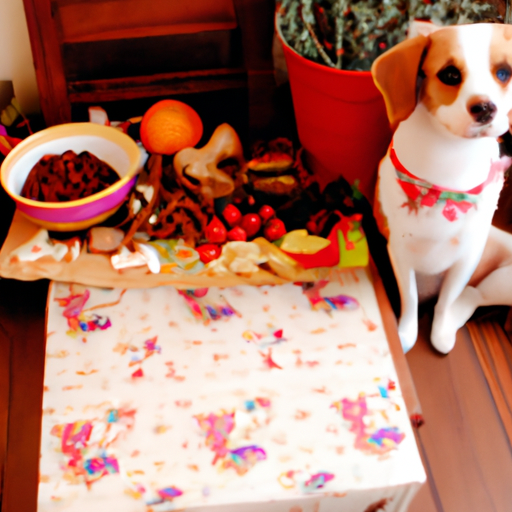As a dog owner, you’ve likely found yourself wondering what exactly your furry friend can and cannot eat. While it can be tempting to share your food with your pet, it’s essential to understand that some human foods can be harmful, or even deadly, to dogs. In this comprehensive guide, we’ll explore some of the foods dogs should never eat, why they’re harmful, and what to do if your dog ingests something toxic.
Table of Contents
- Foods Toxic to Dogs
- Why These Foods Are Harmful
- What to Do if Your Dog Ingests a Toxic Food
- Frequently Asked Questions
Key Takeaways
- Certain human foods are toxic to dogs and should be avoided at all costs.
- If your dog ingests a harmful food, immediate veterinary attention is crucial.
- Educating yourself on your dog’s dietary needs can help ensure their health and longevity.
Foods Toxic to Dogs
Dogs have different digestive systems than humans, so some foods that are safe for us can be extremely toxic to them. Here are some of the most common foods that are harmful to dogs:
- Chocolate: This sweet treat contains theobromine, a stimulant that can cause heart problems, seizures, and even death in dogs.
- Grapes and Raisins: Even small amounts can cause kidney failure in dogs.
- Onions and Garlic: These foods can damage a dog’s red blood cells, leading to anemia.
- Xylitol: This artificial sweetener, found in many sugar-free foods and candies, can cause rapid insulin release in dogs, leading to hypoglycemia (low blood sugar).
- Alcohol: Even small amounts can cause significant damage to a dog’s liver and brain.
For a more extensive list, the American Society for the Prevention of Cruelty to Animals (ASPCA) provides an excellent resource on foods to avoid feeding your pets.
Why These Foods Are Harmful
Each of the foods listed above is harmful to dogs due to specific compounds they contain. For example, theobromine in chocolate is a potent stimulant that dogs cannot metabolize as effectively as humans, leading to toxic levels in their system. Similarly, the disulfides in onions and garlic damage a dog’s red blood cells, causing anemia.
Understanding these risks is crucial to ensuring your dog’s health and wellbeing. For more information on dog nutrition, check out OneTopDog’s guide to dog food for a thorough breakdown.
What to Do if Your Dog Ingests a Toxic Food
If your dog ingests a toxic food, it’s critical to act quickly. Contact your vet immediately or call the ASPCA Animal Poison Control Center at (888) 426-4435.
Make sure to provide as much information as possible about what your dog ingested and the amount. If your dog starts showing symptoms like vomiting, diarrhea, rapid breathing, or abnormal behavior, take them to the vet immediately.
For more tips on dog health emergencies, OneTopDog’s guide on what to do in case of an emergency is a great resource.
Frequently Asked Questions
Q: Can dogs eat any human food?
A: Yes, some human foods are safe and even beneficial for dogs. For example, lean meats, certain fruits, and vegetables can be a healthy addition to your dog’s diet. However, always consult with a vet before introducing new foods into your dog’s diet.
Q: What should I do if I’m unsure if a food is safe for my dog?
A: If you’re unsure whether a food is safe for your dog, it’s best to err on the side of caution and avoid it. When in doubt, consult with a vet.
Q: How can I stop my dog from eating harmful foods?
A: Training is key. Teach your dog to “leave it” or “drop it” on command. Also, make sure to keep harmful foods out of their reach.
Remember, being educated on what your dog can and cannot eat is the best way to ensure their health and longevity. By being aware of the dangers of certain foods, you can help keep your dog safe and happy. Check out OneTopDog’s guide on training your dog for more tips and tricks.
As the saying goes, “an ounce of prevention is worth a pound of cure.” In this case, a little knowledge about your dog’s dietary needs could save their life.



